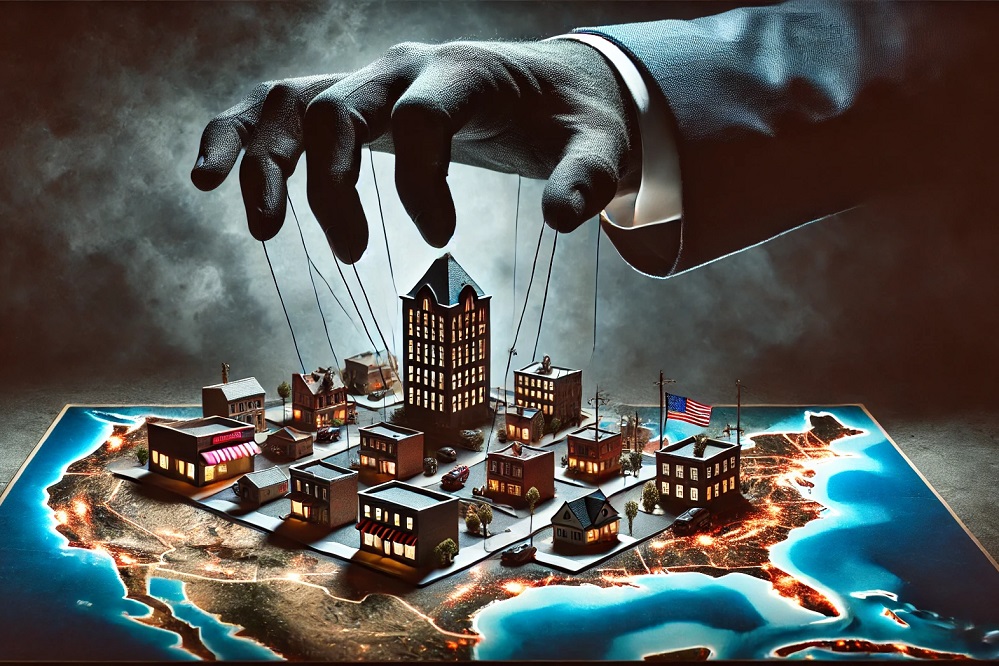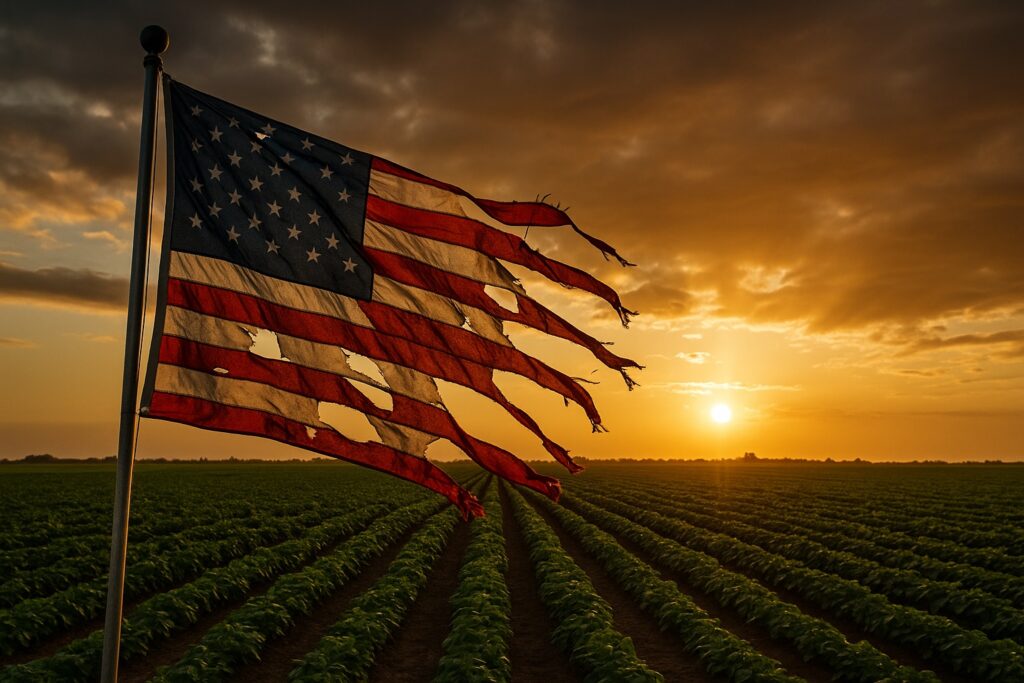For decades, small businesses have been the lifeblood of America. Family-owned shops, local restaurants, and independent retailers once thrived in small towns and big cities alike, providing jobs, supporting communities, and ensuring economic independence. But over the past few decades, and especially in the wake of the COVID-19 pandemic, these businesses have been systematically wiped out by corporate giants like Amazon and McDonald’s, who have used their financial power, Globalist Left Government connections, and online dominance to crush competition and consolidate control over American commerce.
How Amazon Rigged the System to Destroy Small Retailers
Amazon didn’t just build an online empire through innovation and consumer demand—it did so by sidestepping regulations and exploiting government-backed advantages. Unlike traditional brick-and-mortar businesses, Amazon has benefited from tax loopholes, aggressive anti-competitive practices, and sweetheart deals with the United States Postal Service, allowing it to ship products at a fraction of the cost of small retailers.
When COVID-19 hit, local businesses were forced to shut down due to government mandates, while Amazon remained fully operational, increasing its revenue by billions. Unable to compete with Amazon’s lower prices and lightning-fast delivery, thousands of small businesses went under, leaving many American main streets looking like ghost towns.
McDonald’s and the Corporate Fast-Food Takeover
McDonald’s represents another front in the corporate assault on small business. Once upon a time, small-town America was filled with family-run diners, local burger joints, and mom-and-pop restaurants that were unique to each community. Today, McDonald’s and other fast-food chains have pushed them out, using predatory pricing, mass marketing, and aggressive real estate tactics to dominate the food industry.
By underpaying workers, squeezing suppliers, and cutting costs at every turn, McDonald’s has built a system where local restaurants can barely afford to survive. And once McDonald’s takes over a town, it doesn’t just change the food landscape—it alters the entire culture, replacing home-cooked meals and personal service with mass-produced, nutritionally empty fast food.
The Internet and Government’s Role in the Corporate Takeover
The internet was once heralded as a tool for democratizing business. Instead, it has become a weapon used by tech monopolies to eliminate competition. Companies like Amazon use sophisticated data collection and search algorithms to bury small competitors, making it nearly impossible for independent businesses to reach customers. Meanwhile, social media platforms favor paid advertising from corporate giants while throttling organic reach for small business owners.
But it isn’t just the private sector to blame—government policies have actively contributed to this consolidation. Amazon, McDonald’s, and other megacorporations receive billions in tax breaks, subsidies, and government incentives, while small businesses are crushed under regulatory burdens and rising costs.
Outsiders Buying Up Mega Corporations and Controlling North America
Adding to the crisis, foreign entities are increasingly buying up and controlling major North American corporations, allowing them to sidestep health, environmental, and labor regulations. When foreign ownership takes control of major corporations, the focus shifts from national interests to global profits, often at the expense of local economies, worker protections, and safety standards.
China, for example, has taken significant stakes in industries that are vital to North American economies, including agriculture, energy, and manufacturing. Companies such as Smithfield Foods, America’s largest pork producer, are now owned by the Chinese WH Group. Additionally, Chinese firms have invested heavily in North American real estate, technology companies, and even major energy firms, increasing their influence over national economies.
Another example is TikTok, owned by the Chinese company ByteDance, which collects massive amounts of data on American citizens, raising concerns about national security and privacy laws. Additionally, Canadian natural resources and energy companies have seen increasing investments from Chinese state-owned enterprises, granting them greater control over critical industries.
Similarly, Middle Eastern and European investors have taken large stakes in American technology firms, entertainment companies, and infrastructure projects. Companies like Anheuser-Busch, once an iconic American brand, are now owned by AB InBev, a Belgian company. These foreign takeovers shift profits overseas while eroding American economic independence.
The Impact on Small Towns
The death of small business doesn’t just hurt entrepreneurs—it devastates entire communities. When a small town loses its local businesses, it loses:
- Jobs: Small businesses are major job creators, providing employment opportunities that big corporations often replace with automation or minimum-wage, part-time work.
- Community Identity: Small businesses add character to towns, creating unique shopping and dining experiences. When chains take over, every town starts looking the same.
- Economic Independence: Money spent at local businesses stays in the community, whereas money spent at corporate chains flows to executives and shareholders.
What Needs to Be Done
If we want to save small business in America, we must take bold action:
- Break Up Corporate Monopolies: Amazon and McDonald’s have become too powerful, controlling entire industries. Anti-trust laws need to be enforced to break them up.
- Regulate Online Marketplaces: Amazon cannot be allowed to act as both a retailer and a marketplace, where it undercuts third-party sellers and manipulates search results.
- End Government Handouts to Corporations: Tax breaks and subsidies should be reserved for small businesses, not billion-dollar corporations.
- Revive Main Street America: Provide grants, tax incentives, and funding for small businesses to compete and thrive.
- Reform Labor Practices: Ensure fair wages and conditions so small businesses can compete without being undercut by exploitative corporate practices.
- Limit Foreign Ownership of Critical Industries: Implement stricter regulations to prevent foreign entities from gaining control over essential industries that impact American economic and national security.
Conclusion
America was built on the backs of small businesses, not monopolistic megacorporation’s. If we allow companies like Amazon and McDonald’s to continue unchecked, we risk losing not just our economic freedom, but the very soul of our communities. Meanwhile, foreign ownership of major corporations further weakens national sovereignty and economic independence. It’s time to take a stand, push for real reform, and bring power back to the people and small businesses that make America great.




